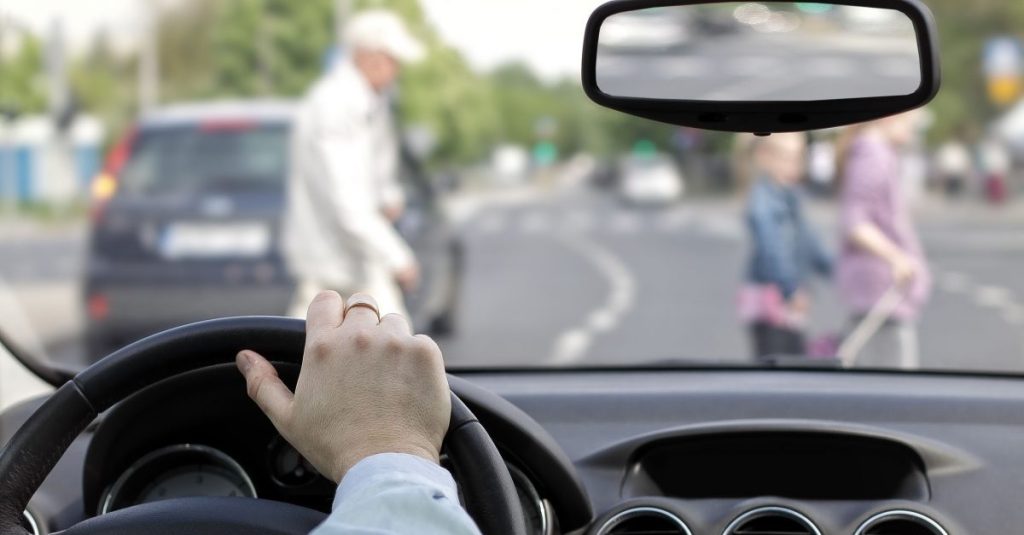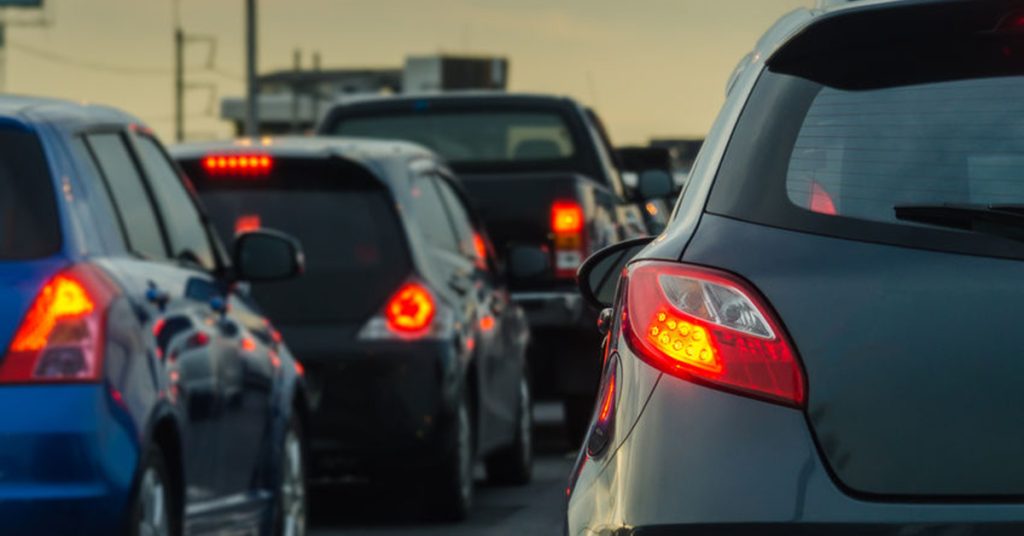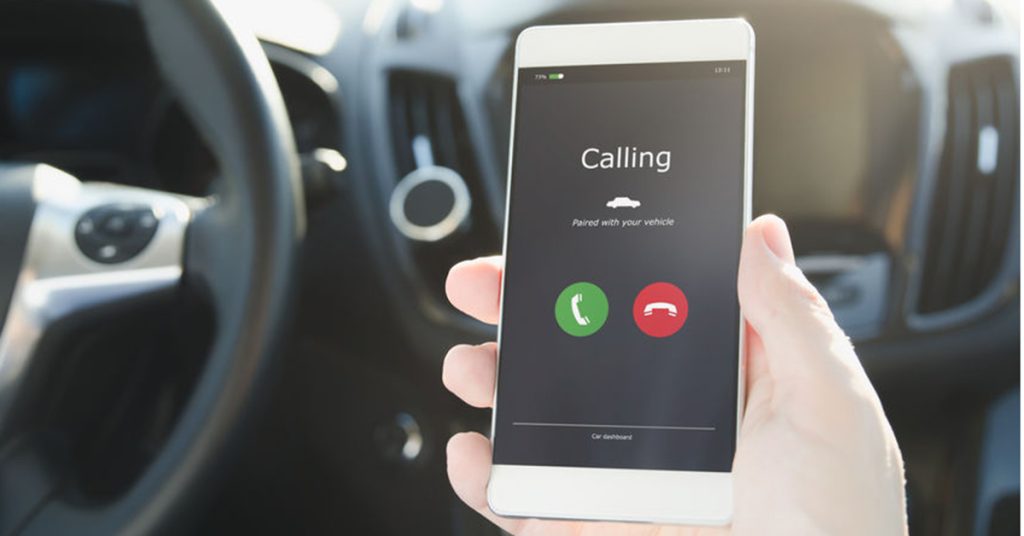Posts Tagged ‘Quincy car accident lawyers’
Tips to Protect Older Pedestrians From Vehicle Crashes During the Cold and Dark Winter in Massachusetts
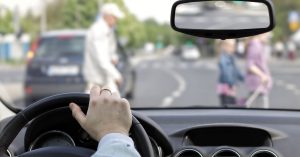 It is a fact: pedestrians age 65 and older face an increased risk for being injured by a car accident or truck crash. According to the Centers for Disease Control and Prevention (CDC), pedestrians of this age accounted for 1 in 5 pedestrian deaths in the U.S. They also suffered 1 in 10 percent of all injuries.
It is a fact: pedestrians age 65 and older face an increased risk for being injured by a car accident or truck crash. According to the Centers for Disease Control and Prevention (CDC), pedestrians of this age accounted for 1 in 5 pedestrian deaths in the U.S. They also suffered 1 in 10 percent of all injuries.
November, December and January are among the darkest months of the year in Massachusetts. At Breakstone, White & Gluck, our lawyers caution all pedestrians take steps to protect themselves. Start before you leave home. One of the most effective steps you can take is to wear a neon colored vest, jacket or other accessories so drivers can see you.
Safety Tips for Older Pedestrians
Arrange for a Ride. During the winter months, ask a friend or family member to give you a ride to the store and help you with other errands. If you do not have someone, call your local town or city hall to speak to their Council on Aging, which may be able to help arrange you a ride. You can go back to walking in the Spring when there is better visibility.
Use Crosswalks. In Massachusetts, pedestrians have the right of way when walking across the street in a crosswalk which has a “Walk” signal or green light.
Do Not Cross the Street Alone. Look for areas where there is a crossing guard if you can. Also look for areas where there are other pedestrians crossing. Do an honest evaluation; if you are walking much slower than other pedestrians, you should only cross when there is a crossing guard or accept a ride.
Avoid Complicated Intersections. Rather than walking through complex intersections, either accept a ride or change your route for the winter months. Also stay clear of wide intersections or roads with traffic passing in both directions.
Be Mindful of Traffic Conditions. If you walk, do so during daylight hours and when traffic is lightest. This is not just advice for crossing the street. Keep this in mind when you are walking through parking lots, where there is a high risk for pedestrian accidents at night.
Find Another Way to Walk For Exercise. Many of us – young and older – like to incorporate some walking for exercise into our daily routines of work and errands. If you miss walking, find a way to walk off the street. Due to COVID-19 restrictions, it is not safe to work out at a health club or gym. You may have to explore other options for exercise this year, such as hiking or even just walking on a lawn. Again, we encourage you to ask friends, family members and others in your community for suggestions.
Safety Reminders for Drivers
Use Reasonable Care and Travel Slowly. Massachusetts drivers have a responsibility to use reasonable care when driving. During the winter months, this means watching for pedestrians at all times, including when you get in your car and when you park. This is the time to utilize your vehicle’s back-up camera. Also watch when you exit your vehicle so you avoid dooring a pedestrian or a cyclist.
Travel Slowly. You cannot control all traffic conditions. But you can control your speed. By traveling slowly, even under the speed limit in residential neighborhoods, you have a greater ability to stop for pedestrians and avoid a pedestrian crash. This is important because older pedestrians are likely to take more time to cross the street. Many pedestrian car crashes occur because a driver misjudged the pedestrian’s speed.
Approach Familiar Places With Caution, Too. Take care even when driving near familiar places, such as a friend’s home, the pizza place down the street or a nearby grocery store. At night, there is a different traffic pace. During the pandemic, the pedestrian and vehicle traffic is changing weekly. There is a greater chance of car accidents in these conditions.
Be Aware of Eye Strain. If prescribed, drivers should wear their glasses at night. The rest of us should also be aware of the risks of eye strain and drowsiness at night. When possible, keep night driving trips short to keep your eyes strong.
Do Not Use Cell Phones. Months after the Massachusetts Hands-Free Driving Law took effect, drivers should know there is no tolerance for picking up a cell phone. The act of dialing a number and cradling a phone takes a driver’s attention off the road for at least several seconds. Drivers have caused many pedestrian crashes through cell phone use. On the same note, pedestrians should set aside cell phones while walking at night near traffic and minimize distractions.
Free Legal Consultation – Breakstone, White & Gluck
Breakstone, White & Gluck has represented pedestrians injured by negligent driving in car accidents, bus crashes and truck collisions across Massachusetts, including in Boston, Cambridge, Quincy, Somerville, Chelsea and Everett.
If you have been injured by the negligence or wrongdoing of someone else, learn your legal rights. Breakstone, White & Gluck is an accomplished Boston law firm known consistently recognized for our results for clients, including by Top 100 New England Super Lawyers, Top 100 Massachusetts Super Lawyers and Best Lawyers in America.
In Boston, we are known for our experience and expertise in representing pedestrians who have been injured in MBTA bus accidents. We won a landmark personal injury case, resulting in a $7.1 million verdict for our client, after trial and appeals to the state’s highest court. Our client had the horrific experience of being struck by a MBTA bus in a South Boston crosswalk. The driver had admitted fault, and the MBTA police investigation confirmed the finding. But the MBTA refused to even make an offer of settlement and our attorneys pursued an award at trial.
For a free legal consultation, contact Breakstone, White & Gluck at 800-379-1244 or 617-723-7676. You can also use our contact form.
Keeping Your Massachusetts Auto Insurance Policy in Good Standing During COVID-19 Emergency

Save yourself time and frustration. Our tips for keeping your Massachusetts auto insurance policy in good standing during the COVID-19 state of emergency.
Be proactive and keep your auto insurance policy in good standing during the COVID-19 emergency. When you move or cannot make payment, let your auto insurer know in advance. This will save you a great deal of time, frustration and money during an already stressful time.
First, some news on a small savings. Due to a decrease in driving, many insurers have committed to giving Massachusetts drivers a 15 percent discount for April and May (roughly $30 in savings on a $1,200 policy), according to The Boston Globe. Not a large savings, but you don’t have to be proactive here. Just look for the credit to appear on your premium statements or a rebate check to arrive in the mail.
How Auto Insurance Works For You
Auto insurance is a critical tool in protecting yourself and your family from injury and major financial loss in a car accident or truck crash. If you were negligent in a car crash, you need to have coverage to financially compensate any victims for their medical expenses and other losses. This protects your other financial assets.
When another driver is at fault and causes your injuries, you should be entitled to seek compensation from their auto insurance policy. What’s unfair is this coverage may not be available if the driver is uninsured or is underinsured and has only purchased the state’s minimum requirement for compulsory coverage.
Many drivers should also purchase optional coverages to protect themselves. Read more in our article, “Understanding and Buying Massachusetts Car Insurance.”
Keep Current with Auto Insurance Billing
If you are unable to pay your auto insurance premium, notify your insurance agent or insurer in advance of your payment date. Auto insurers have the right to cancel your policy for non-payment and they can do so in short time. This can lead to extra fees and take up a lot of your time. The worst scenario is if you are stopped by a police officer when your auto insurance has lapsed. You could be fined and your license could be suspended, adding another layer of time and frustration.
Avoid this stress. Call your insurer and request a payment extension. The Massachusetts Department of Insurance has advised insurers “to work with consumers to be flexible and make every possible effort to avoid policy cancellation.” Read this advisory.
And if you don’t have electronic access to your auto insurance policy, ask about setting it up now so you can monitor your account.
Update Your Address
The Massachusetts Department of Insurance calls this “the single most important thing you can do to protect yourself from a claim denial.” Your insurer sets your premium in part based on your address and the risk of collision there. If you don’t update your address, your insurer may still pay claims for your compulsory coverage. Very likely they will deny claims for your optional coverages.
If you have moved or returned home from college, notify your insurer that you have changed your address and are garaging your vehicle in a different location. Your insurance company may (or may not) provide you with some leeway up to 30 days. Regardless, update your policy immediately. You also have an obligation to update your motor vehicle registration and license and you can do this online.
Don’t own a car? Remind your family members to add you back to their policy.
Reconsider Your Coverages
As Massachusetts looks to reopen, some workers will telecommute. Still, we urge you not to reduce your auto insurance coverages to save money. Not yet. But start a conversation with your auto insurance agent about your current coverages and if they meet your needs.
Start by asking about your optional coverages. Specifically, do you have enough MedPay coverage? And do you need more underinsured and uninsured coverage? A note, if you can only raise one, purchase more MedPay, which will help pay your medical bills. For a few dollars, you can increase your coverage by $10,000 or more and this makes a big difference). Then consider raising your underinsured and uninsured coverages as well. If you do, make sure you purchase the same amount of bodily injury coverage.
If you are spending more time on a bicycle, we urge you to wear a helmet first and foremost. You will also benefit by adding auto insurance coverages to help with your medical expenses and other losses. You may be able to add coverages to your own auto insurance policy or to a household policy. Read our article, “What Every Massachusetts Bicyclist Needs to Know About Car Insurance.”
Going forward, if you transition to working at home more, monitor your mileage. You may be able to request a low mileage discount and save money without losing any coverage.
Also, consult your insurance agent if you begin driving as part of a new job or as an independent contractor for a restaurant or business. If you are in a car accident while making work deliveries, your private passenger auto insurance policy will not cover you.
The Massachusetts Department of Insurance advises drivers and businesses to ask their insurers about endorsements for delivery drivers during the Massachusetts COVID-19 state of emergency. Read the state’s advisory, “Insurance FAQs During COVID-19 Public Health Crisis.”
About Breakstone, White & Gluck – Boston Car Crash Lawyers
Breakstone, White & Gluck is consistently recognized as a top-rated personal injury law firm in Boston. With more than 100 years combined experience, our attorneys have assisted thousands of car accident victims in Boston, Cambridge, Quincy and across Massachusetts. We have a track record of successful results covering nearly 30 years.
For a free legal consultation, contact Breakstone, White & Gluck at 800-379-1244 or 617-723-7676. You can also use our contact form.
Massachusetts Hands-Free Law Update: Fines Can Begin April 1, 2020
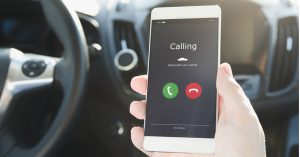
The Massachusetts hands-free driving law bans this action. Fines start today, April 1, 2020.
As of today April 1, Massachusetts police departments can start to issue citations and fines to drivers who violate the Massachusetts hands-free driving law. We encourage you to follow the Massachusetts COVID-19 “Stay at Home” advisory. But if you have to go out, you can help yourself drive more safely and avoid a fine by checking that your car is set up for hands-free mode. Even better? Read this update, but turn off your cell phone while driving. Many of us are exhausted and out-of-routine. Focus on the roads and what you need to get done, so you can get back home.
So far, many drivers are still picking up phones, despite the new law. During the initial grace period from Feb. 23-Mar. 31, police issued 4,500 written warnings across Massachusetts, according to a state official interviewed by WGBH. The official said drivers must become aware of both the law and that police are watching.
“…the police officers I’ve talked to seem to say that everyone who is pulled over says, “Yes, I’ve heard about it. Sorry. My mistake,” said Jeff Larason, director of highway safety at the Massachusetts Executive Office of Public Safety. (Listen to the WGBH segment in full).
Massachusetts passed a texting while driving law in 2010 but lawmakers spent nearly 10 years debating the handheld cell phone ban.
The Massachusetts hands-free driving law was passed by the Massachusetts Legislature in November 2019 and quickly signed by Gov. Charlie Baker on Nov. 29. To help drivers get ready, the state granted an initial grace period. Larason told WGBH 4,500 drivers had received written warnings (broadcast date: March 13). The Boston Globe reported State Police had issued 578 warnings to drivers, in just the first week. On Cape Cod, local police reported 150 verbal or written warnings in the first week (Source: South Coast Today via Cape Cod Times).
What the law allows and bans:
- The law states drivers cannot use any electronic device, including mobile telephones, unless the device is being operated in hands-free mode.
- Drivers can only touch cell phones and mobile phones once to activate hands-free mode.
- Cell phones must be properly mounted to the windshield, dashboard or center console and not impede with operation. This is the only way drivers are allowed to use GPS or voice to text technology such as Bluetooth.
- Drivers are specifically not allowed to touch phones for texting and emailing. Use of apps, video or Internet is also prohibited.
- Drivers who are 18 and younger are not allowed to use cell phones behind the wheel. Hands-free is illegal and can result in violation of their Massachusetts Junior Operator’s License.
- You may be stopped. But you are not allowed to pick up your phone at red lights or stop lights.
- You can pick up your cell phone and make a call if you are in a stationary position, outside a travel lane or bicycle lane.
- There is also an exemption for emergency professionals who need to pick up the phone for calls and those calling 911. 911 calls must be taken seriously. The state advises drivers to make every attempt to pull over before calling 911 – even if you are in hands-free mode.
Violations of the Massachusetts Hands-Free Driving Law
Police in Massachusetts can now start issuing tickets. Here are the penalties:First offense: $100 fine.
Second offense: $250 fine and distracted driving education.
Third offense: $500 fine and distracted driving education.
With a third offense, you may face an insurance surcharge.
Related:
Massachusetts hands-free driving law, Mass.gov
Breakstone, White & Gluck – Boston Personal Injury Lawyers: 800-379-1244
With more than 100 years combined experience, Breakstone, White & Gluck specializes in representing plaintiffs in personal injury cases involving car accidents, truck accidents, pedestrian accidents and bicycle accidents. Our attorneys have extensive experience handling cases for clients injured by negligent use of cell phones and texting while driving. We represent clients across the state of Massachusetts in car accident cases, including in Boston, the North Shore, the South Shore and Cape Cod.
We are open and working remotely for our clients during the state’s COVID-19 advisories. If you have been injured, we are providing free legal consultations at 800-379-1244 or 617-723-7676. You can also use our contact form.
Slow Down! Boston, Cambridge and Other Cities Have Dropped Speeds to 25 MPH
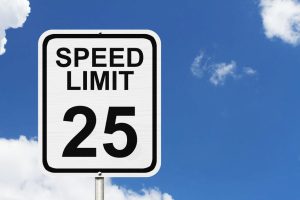 Over the past year, Boston, Cambridge and several other communities have lowered default speed limits from 30 to 25 mph, with a goal of creating safer streets for pedestrians and cyclists. Now it is Quincy’s turn.
Over the past year, Boston, Cambridge and several other communities have lowered default speed limits from 30 to 25 mph, with a goal of creating safer streets for pedestrians and cyclists. Now it is Quincy’s turn.
Last week, the Quincy City Council passed a measure establishing a speed limit of 25 mph, unless another speed limit is posted. The previous speed limit had been 30 mph. Once Mayor Thomas P. Koch signs the new law, officials will decide on an effective date.
In January 2017, the City of Boston dropped its default speed limit from 30 to 25 mph.
Lowering the speed limit was a key part of the Vision Zero Boston campaign, which was launched by Mayor Marty Walsh in 2015. The goal is to end traffic deaths and serious injuries in the City of Boston by 2030, through a combination of efforts, such as reducing speeds, eliminating distracted driving, and improving infrastructure for safer riding, walking and cycling.
While lowering speed limits was a critical step, the City of Boston was unable to act right away.
First, the city had to obtain approval from the state Legislature and Gov. Charlie Baker. Baker signed the Municipal Modernized bill in August 2016, which gave Boston, as well as cities and towns across the state, authority to reduce the default speed limit on local roads.
So far, these communities have reduced speed limits:
- Boston
- Cambridge
- Somerville
- Arlington
- Newton
- Randolph
- Scituate
- Quincy (approved by City Council)
Source: The Boston Globe.
Benefits to Slower Speed Limits
There is strong evidence that slower traffic means safer streets. An excellent example is New York City. In 2014, the city lowered speed limits to 25 mph on 90 percent of its streets. Over three years, traffic fatalities have decreased 23 percent and fell to the lowest number in the city’s history in 2016.
Boston city officials say that when crashes happen, faster vehicles are likely to cause the most serious injuries and fatalities. According to the City of Boston website, at 20 mph, there is a 17 percent likelihood that someone will be seriously injured or killed. At 40 mph, there is a 79 percent likelihood. Slower vehicles can be stopped more quickly, and the slower speeds allow for longer reaction times.
Read More


